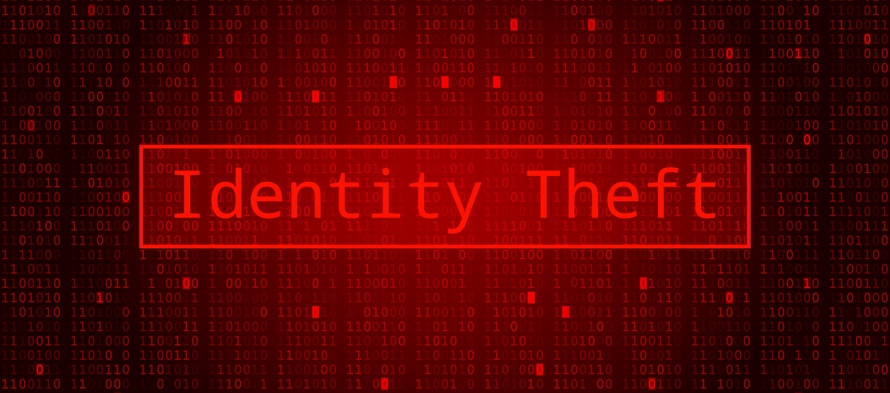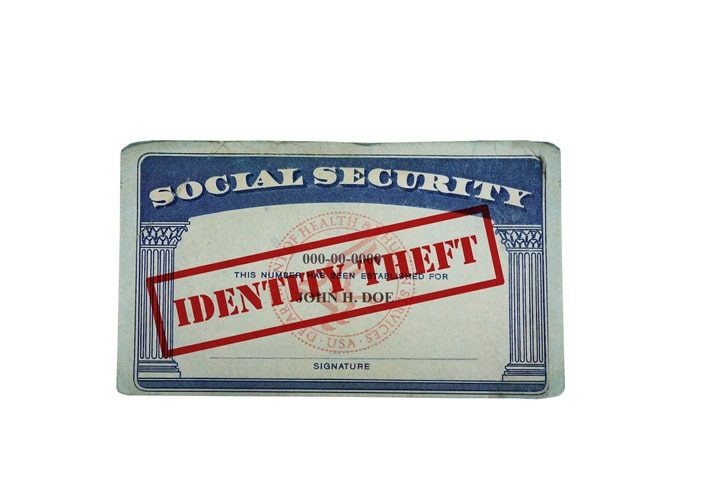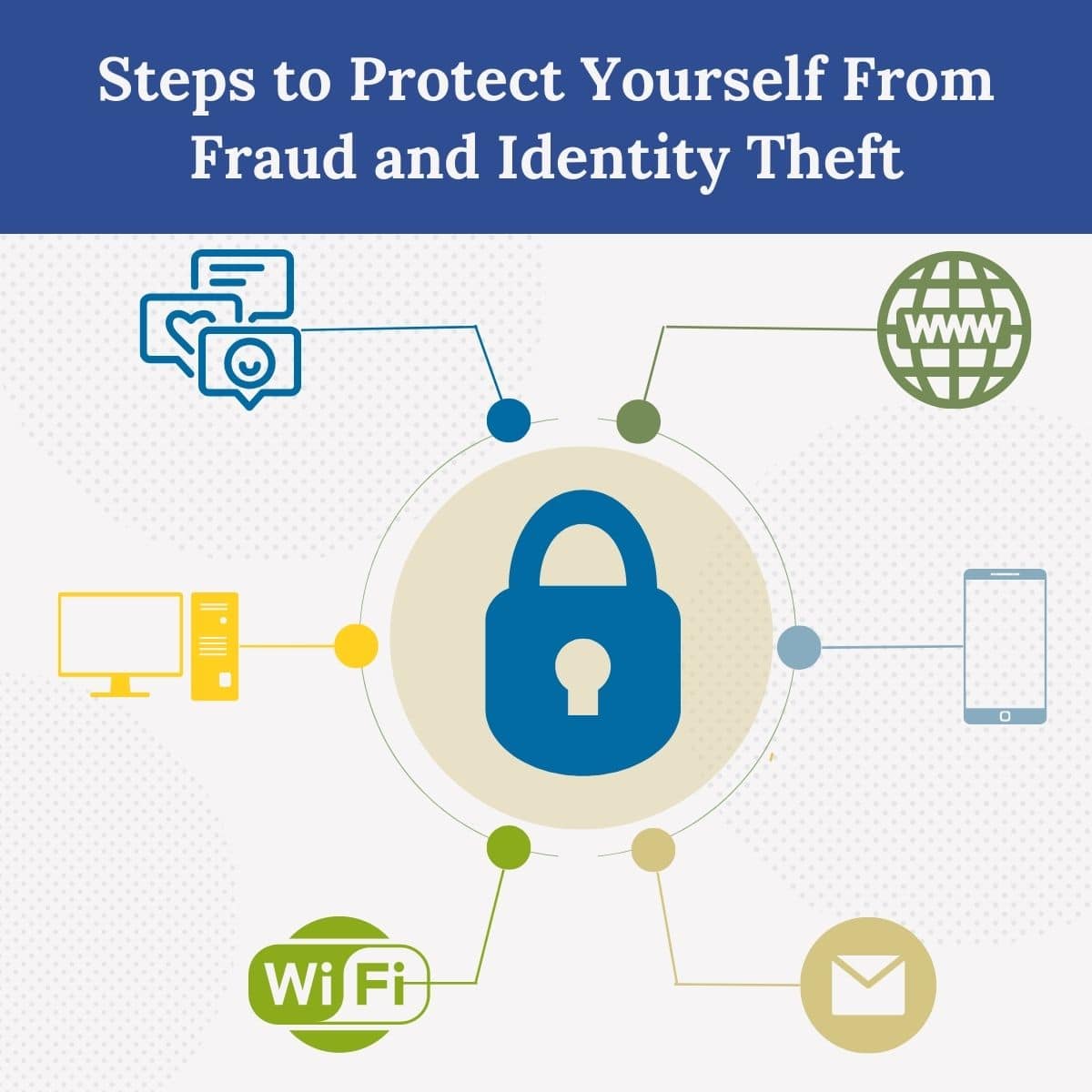No one ever wants to contend with fraud or identity theft, however almost 1/3 of Americans have been a victim [1]. If this happens to you, it can feel stressful, disheartening, and quite honestly, scary. The good news is, there are several different actions you can take to help protect yourself from significant loss or continued fraud.
Actions to Take
Below is a list of steps you should take immediately if you have been a victim of fraud or identity theft:
- Place a freeze on your credit with all three credit bureaus (Equifax, Experian, and TransUnion). Additionally, you should file a fraud alert with all three credit bureaus.
- Change the passwords for all your accounts, including email, financial, social media, and any app or website where you may have saved your credit card information.
- Ensure you enroll in dual authentication for all account logins. Dual or multi-factor authentication (MFA) requires a password and a code sent via email or text in order to login successfully.
- Contact every financial institution you work with to alert them of theft or suspicious activity.
- Monitor your credit card, bank, and other financial accounts for any suspicious transactions. Regardless of the dollar amount, report any unusual activity directly to the institution.
- Contact Social Security to alert them of fraud or potential identity theft.
- Consider using an identity theft protection company such as IdentityForce or Lifelock [2]. These companies offer varying levels of service such as Social Security number monitoring, credit line activity, dark web monitoring, identity theft insurance, identity theft resolution and more.
Additional Steps
Depending on the magnitude and specific circumstances of the fraud or identity theft, you may also want to take the following measures:
- Request from the IRS an identity protection pin (IP PIN) which is a personal taxpayer identification pin that will provide an extra layer of security for filing your income tax returns.
- Request your account numbers be changed.
- In most cases, financial institutions only allow this if there is actual fraud in your account.
- Put a freeze on your minor’s credit. This needs to be done with all three credit bureaus. If your child is under 16, you must be the one to complete the request.
- This process is not as straightforward as putting a credit freeze on your own credit since minors under 18 typically do not have credit reports. Additional documentation is required, and it may take a few days for the credit freeze to be put in place. However, if your minor’s information has been compromised, they could be at risk.
- Contact local authorities. Depending on the situation, it may be your obligation to report the fraud to the police or other law enforcement agencies.
- Obtain a new driver’s license and passport.
As criminals become savvier in stealing identities, it is essential to take preventive measures to protect yourself. If you are the victim of fraud or identity theft, contact official government agencies and financial institutions as soon as possible to try to mitigate damage. Always ensure you are using official phone numbers when calling to report a problem. With vigilance and quick action, you can help minimize any damage done.
Your identity protection is critical to securing your financial future. SageVest cares about all aspects of your financial wellbeing. Please contact us with any questions or to learn more about our comprehensive services.
References
[1] https://explodingtopics.com/blog/identity-theft-stats
[2] https://www.usnews.com/360-reviews/privacy/identity-theft-protection




